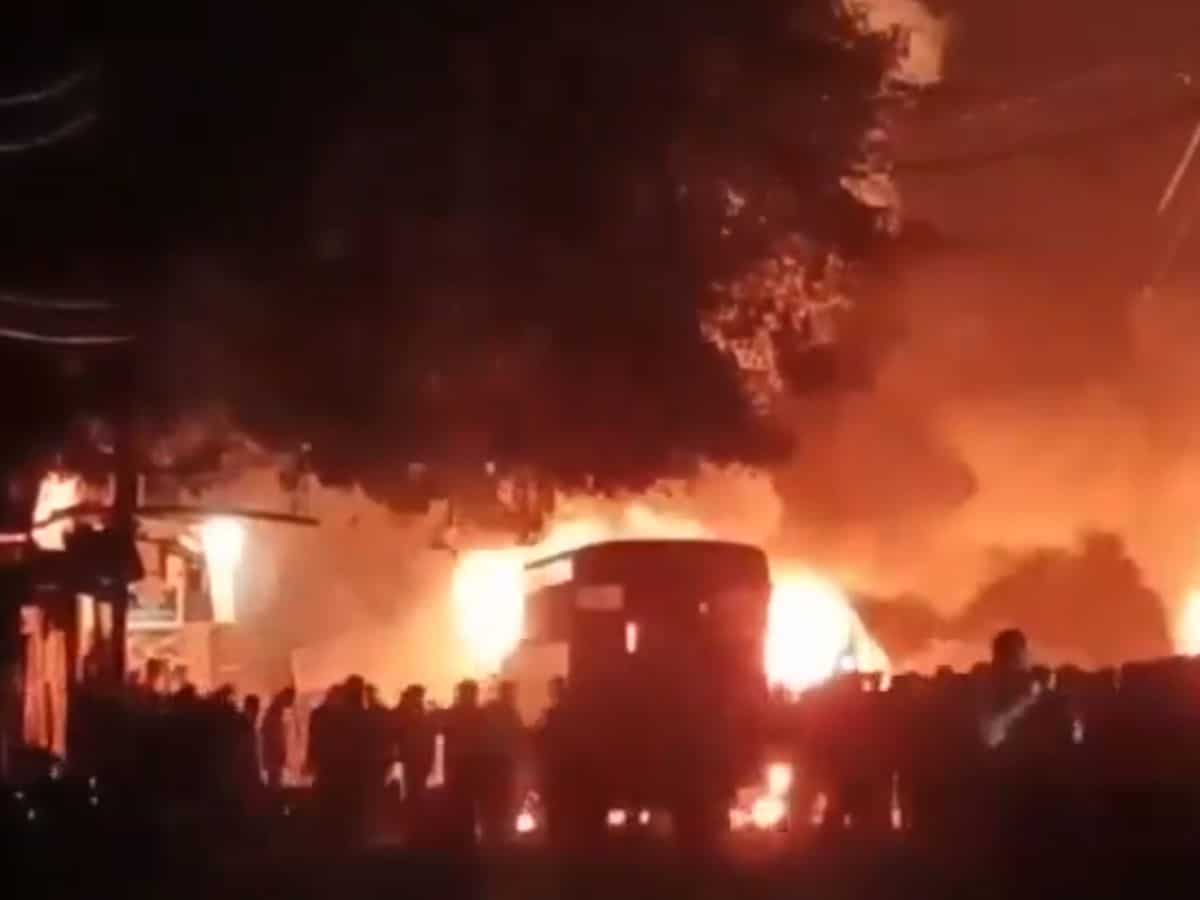
Following the violence in Uttarkhand’s Haldwani over demolition of an Islamic seminary, the police have claimed that burqa-clad women were pelting stones on officers on-duty. The women, who allegedly created a ruckus in the Banbhulpura violence were being identified to face the law, official sources said.
Senior Superintendent of Police Nainital Prahlad Narayan Meena alleged that during the anti-encroachment drive, women wearing burqas attacked police personnel with stones. On the basis of security footage, the accused were being identified, he said.
Haldwani violence
Disappointing minorities, the authorities on Thursday, February 8, demolished a madrassa and a mosque in Bhnbhulpura, Haldwani, which they claimed had been built on government land. The unprecedented move sparked deadly violence in the area, claiming six lives, wounding over 60, and forcing more than 300 Muslim families to flee from their homes.
In the wake of violence, the families faced a lack of transportation facilities with a curfew in place. Several families were seen walking on the roads while carrying their luggage.
Meanwhile, the authorities have fortified all the entry and exit points in Banbhulpura because more Muslim families were planning to migrate. The decision to block the points had been taken by the police because it was speculated that the people involved in the violence could also flee.
Furthermore, as many as 30 people were arrested for being involved in the violence, while many more are still being identified. The Uttarakhand police have alleged that weapons were recovered from the possessions of the arrested people.
Police have also warned the public to stay indoors, or else stern actions will be taken against them. Internet facilities have been restored in some places, while in areas where curfew is still in place and internet service remains barred.
Meanwhile, A delegation of Jamiat Ulema-e-Hind visited Haldwani on Sunday and convened a meeting with the Sub-Divisional Magistrate (SDM), wherein they put forward their demands before the district administration.
Police station over Madrassas
After the four-hour meeting concluded, Jamiat Ulema-e-Hind General Secretary Abdul Raziq said that the decision to raze the mosque was taken by the administration in haste, sparking tensions and violence in the area.
“We came here to appeal for peace in the area. We have requested that the SDM ensures that actions are not taken against innocent people. It has happened because the demolition drive was carried out suddenly,” he said.
“The administration should have waited for the court’s orders. Neither were there demolition orders nor orders by the court to put the demolition on hold. We want an answer as to why the action was taken in haste,” he added.
Meanwhile, Chief Minister Pushkar Singh Dhami announced that a police station will be built at the same location where the Islamic seminaries and mosque were demolished.
‘Unethical moves’
It is being speculated that the authorities action to control the situation was biased after a fact-finding report revealed that the police did not follow the ethical crowd-controlling procedure.
The report suggested that the way to control the crowd is a step-by-step process. In the beginning, police should warn the crowd, then lathi charge. If the crowd is still uncontrolled, then tear gas may be used, and if the situation goes haywire, only then can police resort to firing. However, police used firing at a very early stage in Haldwani.
In a press conference held recently, activist Nadeem Khan, while questioning officials under whom the operation in Haldwani was pursued, claimed that the narrative of ‘Jihad’ has been at the center of the contentions in Uttarkhand.
He further stated that raids were conducted at over 300 houses and women were beaten. There were also incidents of vandalism inside the houses.
Former IFS officer Ashok Kumar also questioned the nature of the actions by the local administration. He alleged that the “local administration’s attitude was completely political and one-sided; the people at the local administration placed the ethics and morality of civil services in peril.”



